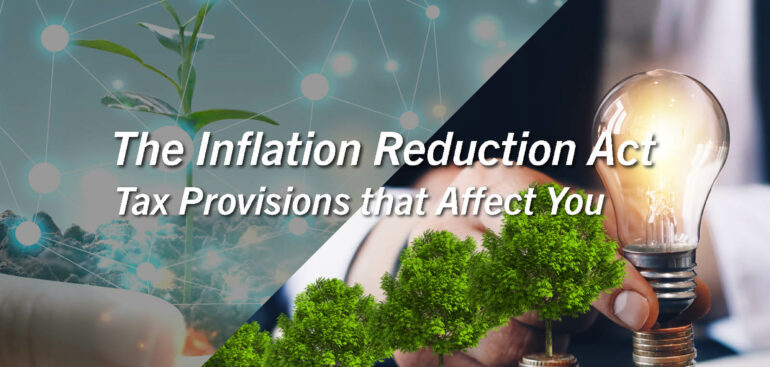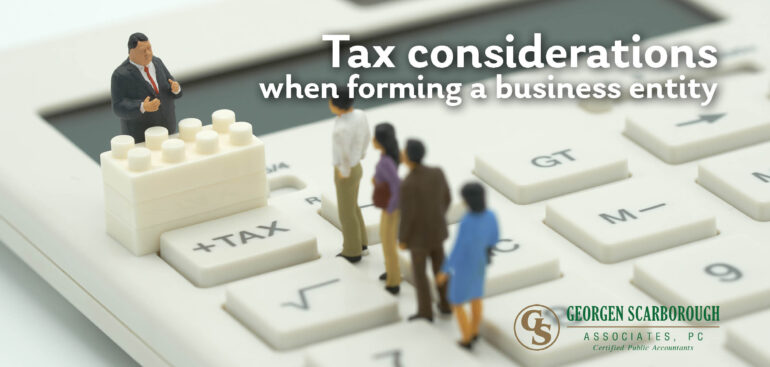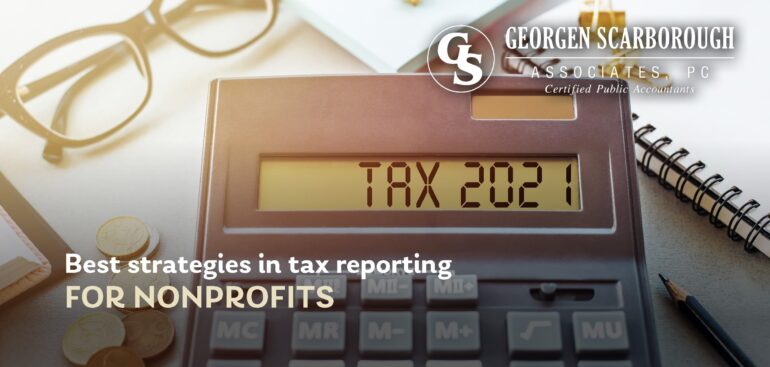Inflation Reduction Act Tax News
This information on The Inflation Reduction Act is shared from The Journal of Accountancy article, A deeper dive into the Inflation Reduction Act’s tax provisions
The budget reconciliation bill, P.L. 117-169, known as the Inflation Reduction Act, was signed into law on Aug. 16. It includes numerous tax provisions, including new corporate taxes. It also contains numerous clean-energy-related tax incentives and money for IRS enforcement and other initiatives.
Corporate Alternative Minimum Tax
The new corporate AMT is based on book income rather than taxable income. Specifically, it imposes a 15% tax on the excess of the corporation’s adjusted financial statement income over its corporate AMT foreign tax credit for the year.
Excise Tax on the Repurchase of Corporate Stock
The act introduces a new 1% excise tax on corporate stock repurchases (new Sec. 4501). Covered corporations must pay the tax on the fair market value (FMV) of any stock the corporation repurchases during the tax year.
Clean Energy Provisions for Individuals
The Sec. 25C nonbusiness energy property credit is extended through 2032 and is renamed the energy-efficient home improvement credit. The amount of the 25C credit is changed from a $500 maximum lifetime credit to a credit of up to $1,200 per year.
Clean Vehicle Credits
The act also removes the limitation on the number of vehicles eligible for the credit, so electric vehicles purchased from manufacturers that had formerly reached their cap will now be eligible for the $7,500 credit. It also imposes a new requirement that a percentage of critical minerals used in the car must have been extracted or processed in the United States or in a country with which the United States has a free trade agreement or recycled in North America.
Clean Energy Manufacturing
The act extends the Sec. 48C advanced energy project credit by making allocations for up to $10 billion more in awards for qualified investments, effective Jan. 1, 2023. To encourage the clean production of electricity, the act creates a new credit for the production of electricity at qualified facilities placed in service after Dec. 31, 2024, with a greenhouse gas emissions rate of zero.
Energy Provisions for Businesses
The Sec. 45 credit for electricity produced from certain renewable sources (including geothermal, solar, and wind facilities) is extended through 2024. Sec. 48 is also amended to provide an increase in the energy credit for qualified solar and wind facilities placed in service in connection with low-income communities. The act creates a zero-emission nuclear power production credit and introduces an alternative deduction under Sec. 179D for taxpayers that retrofit property to be more energy efficient.
Treating clean energy tax credits as payments
Under new Sec. 6417, eligible taxpayers can elect to treat a multitude of eligible energy credits as tax payments. These range from alternative fuel refueling property credits to clean electricity investment credits. Under new Sec. 6418, eligible taxpayers generally can transfer these credits (except the qualified commercial vehicle credit) in any tax year to another taxpayer.
To make sure you maximize your refund, consider having your taxes done by a professional tax expert who will know all the relevant tax laws for your situation.
Georgen Scarborough Associates provides tax preparation services. If you need help or advice filing your tax return and reaping the benefits of the latest tax laws, please contact one of our tax preparation experts today.










